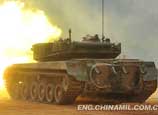
Related Reading
·Chinese president participates in BRICS Leaders-Africa Dialogue Forum
·Full text of the Fifth BRICS Summit Declaration and action plan
·BRICS 'set to be global force'
·BRICS summit delivers tangible results
·BRICS summit ends as leaders agree to establish development bank
·BRICS countries move to ease dependence on west
DURBAN, South Africa, March 27 (Xinhua) -- BRICS nations said on Wednesday that significant risks remain and the performance of the global economy still falls behind their expectations.
"Uncertainty about strength and durability of the recovery and the direction of policy in some major economies remains high," Brazil, Russia, India, China and South Africa said in a declaration released after the conclusion of the 5th BRICS Summit in Durban.
BRICS nations said some of policy actions in Europe, the United States and Japan that are aimed at reducing tail-risks in the world economy "produce negative spillover effects on other economies of the world."
Central banks in advanced economies have responded with unconventional monetary policy actions which have increased global liquidity, the declaration said. Major central banks "should avoid the unintended consequences of these actions in the form of increased volatility of capital flows, currencies and commodity prices, which may have negative growth effects on other economies, in particular developing countries," the declaration said.
The BRICS nations reaffirmed their strong commitment to support growth and foster financial stability, and also underscored the need for appropriate action to be taken by advanced economies in order to rebuild confidence, foster growth and secure a strong recovery. In the declaration, the emerging economies expressed concerns over the slow place of the reform of the International Monetary Fund.
They called for the reform of international financial institutions to make them more representative and to reflect the growing weight of BRICS and other developing countries. The BRICS nations are also concerned with the deterioration of the security and humanitarian situation in Syria, and reaffirmed their opposition to any further militarization of the conflict in the country.
For the Iranian nuclear issue, they said there is no alternative to a negotiated solution. "We are concerned about threats of military action as well as unilateral sanctions." The five nations also are "gravely concerned with the deterioration in the current situation in the Central African Republic," and urged all parties to the conflict to immediately cease hostilities and return to negotiations.
















 6.5-magnitude quake hits Taiwan
6.5-magnitude quake hits Taiwan
kills one, injures 19


![]()
